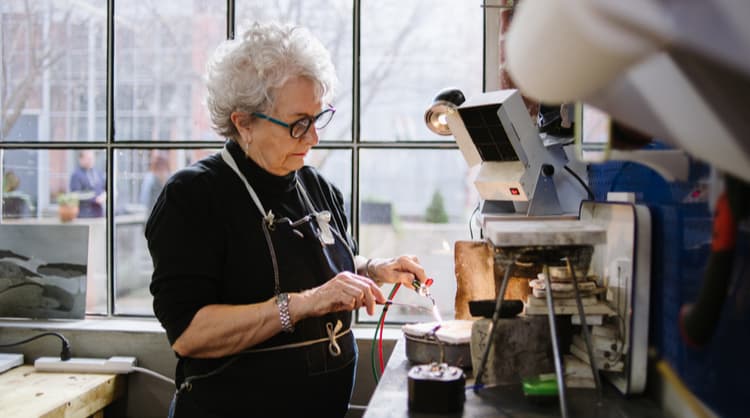Older workers: why Australians over 65 are returning to work

Retirement is something many of us look forward to after spending much of our lives working to build our wealth. However, as we begin to enjoy better health, longer lives and the financial freedom of a steady job, the desire (or the option) to retire just isn’t as strong as it once was.
The 2015 Intergenerational Report claims that Australians will continue to have one of the longest life expectancies in the world. The report projects that the number of Australians aged 65 and over will more than double by 2055, when there will be around 40,000 people aged 100 and over. In 2055, men can expect to live to age 95.1 and women to 96.6 years on average.
This—coupled with recent government actions towards keeping Australians in the workplace longer has resulted in more older workers seeking to remain employed. Here are some of the reasons why older workers are deciding to return to work in Australia.
6 reasons older Australians are returning to work
- It’s a way to make extra income.
- Working creates a sense of purpose.
- Older workers are open to trying new jobs or industries.
- Many Australian businesses are coming to see the benefits of hiring older workers.
- Work is a way to stay active and engaged.
- The government has made it harder to retire early.
1. It’s a way to make extra income.
Perhaps the most obvious reason for those over 65 to pursue employment is to supplement their income to get the most out of their retirement savings. Workers are still able to receive a pension and their super while working part time, which encourages many mature age workers to seek regular employment.
2. Working creates a sense of purpose.

For many people, work is an important part of their identity. Having something to strive for and responsibilities to take care of creates a sense of meaning and purpose. It is a reason to wake up each day which can be great for mental wellbeing. A strong work ethic can be difficult to break, and many retirees find that even just having a part-time or a volunteer job is a great way to get that sense of accomplishment back.
3. Older workers are open to trying new jobs or industries.
For some baby boomers, there is a growing appeal for trying something new that they haven’t had a chance to in previous years. Since they may not be entirely reliant on the income they earn, they may be more flexible about the type of work they choose to do.
4. Many Australian businesses are coming to see the benefits of hiring older workers.

According to Jobactive, mature age workers are reliable, flexible and highly knowledgeable within their area of expertise. As well as bringing in a lifetime of experience, older workers are also great mentors for younger staff. Hiring older workers is also a way to promote diversity in the workplace and capture a range of unique perspectives.
This approach provides mature age workers the dignity and social benefits that come from contributing to workplaces, communities and the broader economy.
5. Work is a way to stay active and engaged.
After more than 40 years of working as a retail manager, John Baker, 69, started working in the lifestyle section of Bunnings three years ago, “this is a lot more fun than being retired” he says. Meanwhile, Glenda Borello 61, says she is “quite happy to continue” and isn’t thinking about retirement just yet.
Many older Australians are starting to see working as a way to stay active and maintain a good routine. Working is also a way for them to explore their hobbies and interact with people regularly.
6. The government has made it harder to retire early.
Not everyone who returns to work after the age of retirement has a say in the matter. For some, it’s a necessity. The Federal Government recently introduced a range of measures intended to keep employees working for longer. Those born between 1 January 1954 and 30 June 1955, now have to wait until they turn 66 before they can receive the age pension. The pension age is also set to increase to 67 by 2023.
In addition, the work bonus which aims to encourage pensioners to continue doing some paid work, has been increased from $250 to $300 per fortnight. This means that pensioners can earn a maximum of $474 per fortnight ($300 from employment, $174 from other income) before their pension payments are reduced.
On top of that, the age to access your super has increased. People turning 57 between 1 July 2019 and 30 June 2020 will have to wait until age 58 to access their superannuation.
The goal of these measures is to reduce the demand on health and welfare systems so that people are not forced to rely on their pension alone.
Considering returning to work after retirement?
Returning to work is not the only thing many older Australians are thinking about, some are even open to studying and gaining new skills in an industry they haven’t worked in.
According to research by the National Broadband Network, 35% of baby boomers have an interest in studying and 48% would consider studying online. With so many opportunities available for people over the age of 65, it makes sense that many decide to return to work or study either to make extra money or to find personal fulfilment.
Upskilled’s flexible online courses are a great option for many retirees who are considering learning new skills or updating their existing skills to compete in the job market.


)
)

